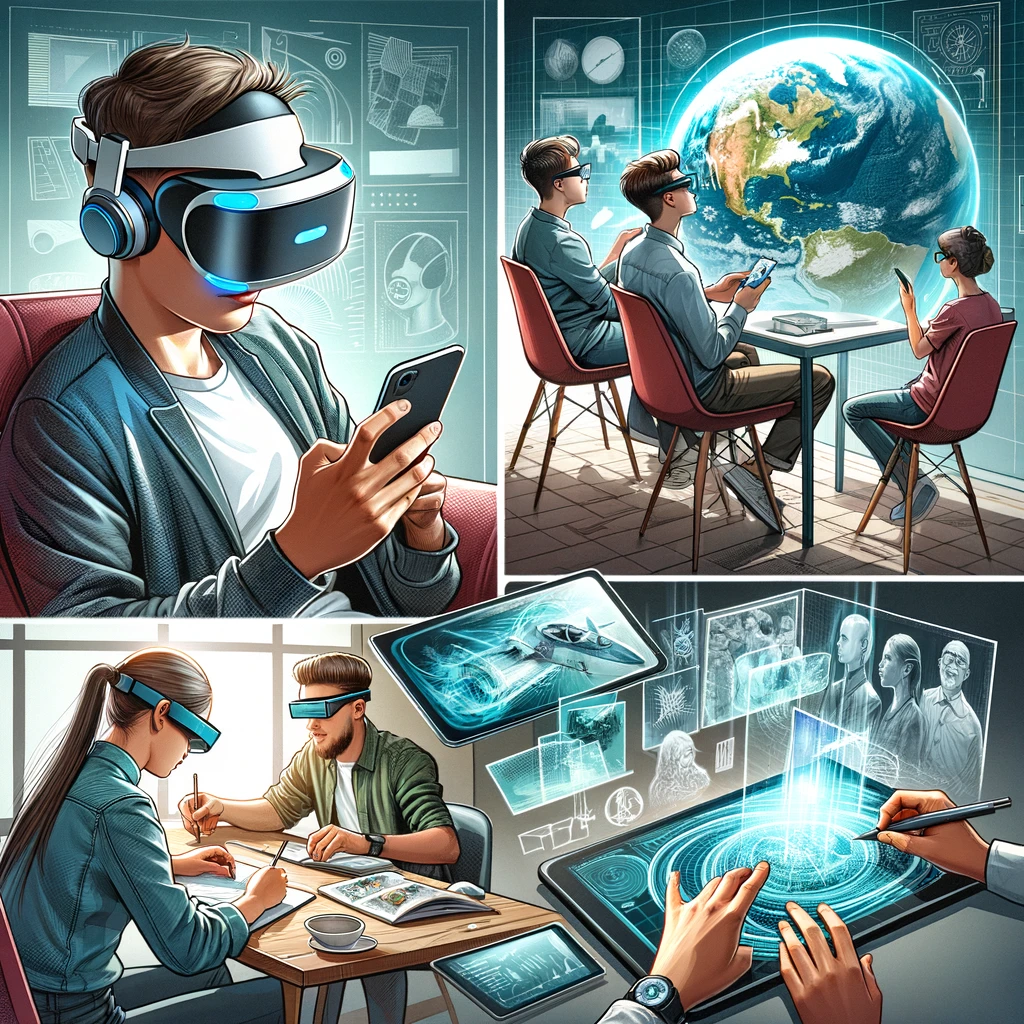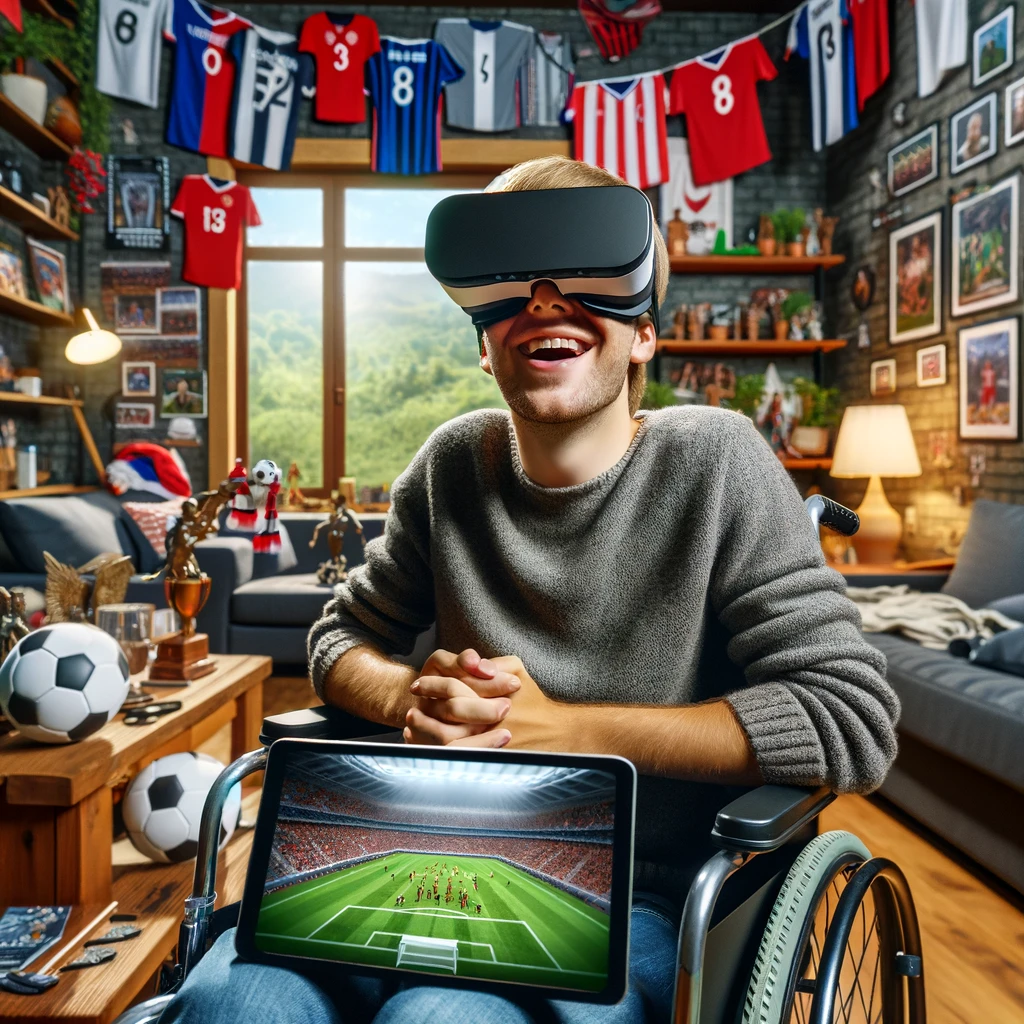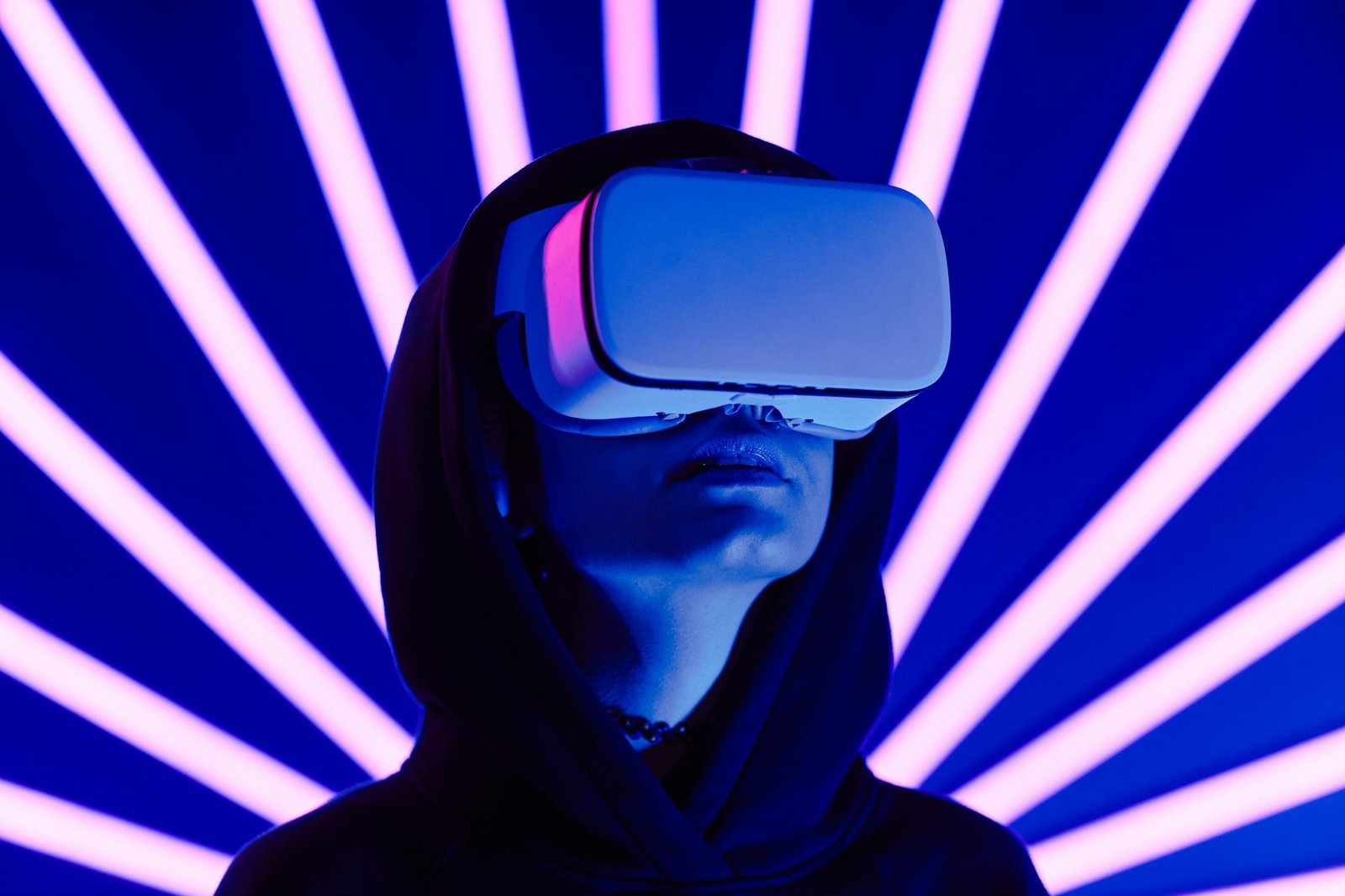Reshaping Media Consumption
In recent years, the realms of Virtual Reality (VR) and Augmented Reality (AR) have seen unprecedented growth, thanks to technological advancements and substantial investments by tech giants like Meta (formerly Facebook) and Apple. These immersive technologies are not just altering the landscape of gaming and entertainment; they’re poised to revolutionize how we consume media, interact with digital content, and perceive the world around us.

Real-world use can be more than gaming and video calling loved ones, seeing things and projects in 3rd dimension could very well give research and science a new perspective
Meta’s Vision for a Virtual Future
Meta has been at the forefront of the VR revolution, with its Oculus devices setting benchmarks for consumer VR experiences. The company’s vision extends far beyond gaming, aiming to create a fully immersive digital world, or “metaverse,” where people can work, play, and connect in virtual environments that mimic physical reality. This ambition reflects a significant shift towards spatial computing, where digital experiences are not confined to screens but exist in three-dimensional spaces around us.
The benefits of VR in media consumption are profound. Imagine attending a live concert from the comfort of your home, with the sensation of being in the front row, surrounded by fellow fans. Educational content can be transformed into interactive experiences, making learning more engaging and effective. VR can also enhance storytelling, allowing viewers to experience narratives from within the story world, creating a deep emotional connection with the content.
Apple’s Augmented Reality Ambitions
While Meta focuses on virtual environments, Apple is betting big on AR, integrating it into everyday devices like iPhones and iPads. AR overlays digital information onto the real world, enhancing but not replacing our physical environment. Apple’s ARKit, a framework for AR app development, has empowered creators to build applications that range from practical uses like interior design and navigation to games that blend digital objects with our surroundings.
The potential benefits of AR in media are immense. For instance, AR can bring static content to life; imagine pointing your smartphone at a newspaper and seeing videos play on the page, merging print and digital media. In education, AR can turn textbooks into interactive learning tools, where diagrams leap off the page, offering hands-on experiences without leaving the classroom.
The Future of Media Consumption
As Meta and Apple push the boundaries of VR and AR, the way we consume media is poised for a transformation. These technologies offer a more personalized, immersive, and interactive media experience, blurring the lines between creator and consumer. They enable new forms of storytelling and content creation, where the audience is no longer a passive viewer but an active participant.
However, the adoption of VR and AR in mainstream media consumption faces challenges, including accessibility, the need for specialized hardware, and ensuring content diversity. As these technologies become more integrated into our daily lives, addressing these challenges will be crucial for their success.

Conclusion
The future of media, shaped by the advancements in VR and AR by companies like Meta and Apple, promises a world where the lines between digital and physical blur. As we stand on the brink of this new era, it’s clear that VR and AR will not only change how we consume media but also how we interact with the world and each other. The journey into this uncharted territory is just beginning, and its full potential is yet to be realized


Hi, this is a comment.
To get started with moderating, editing, and deleting comments, please visit the Comments screen in the dashboard.
Commenter avatars come from Gravatar.